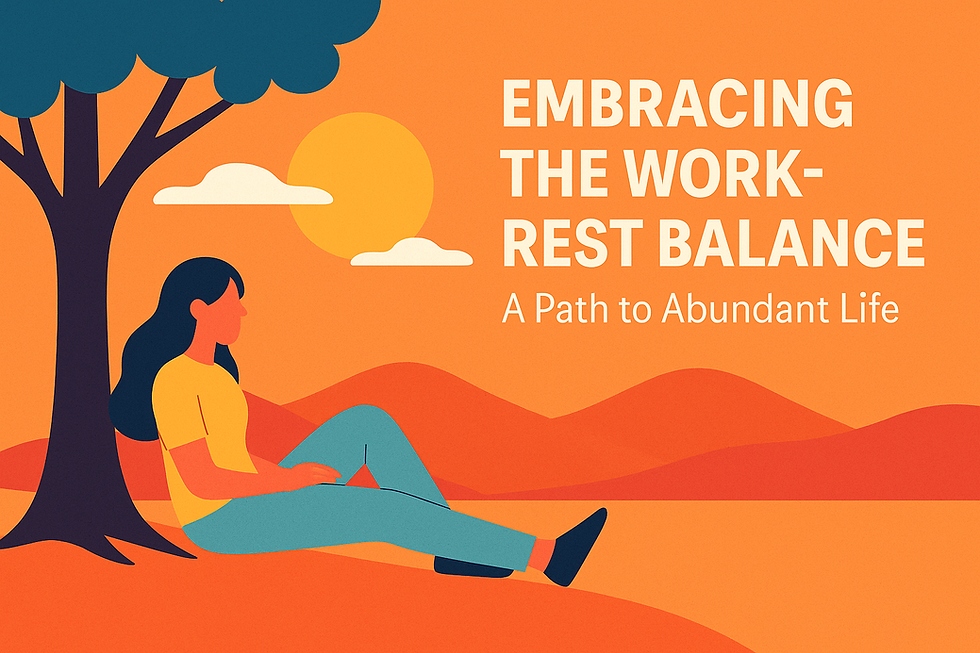Embracing the Work-Rest Balance: A Path to Abundant Life
- Nathan Elliott
- 2 days ago
- 2 min read
by Nathan Elliott & Dave Miller

In a world that constantly pushes us toward productivity, the concept of rest can feel almost counterintuitive. Yet, rest is not just a pause from work; it’s a vital acknowledgment of our human limitations and a declaration of our dependence on God.
When we refuse to rest, we risk acting as though we are the only ones who can get things done, placing ourselves in a position that belongs to God alone. The Bible reminds us that rest is a gift and a command. In Genesis 2:2-3 (NLT), after creating the heavens and the earth, God rested on the seventh day, setting a pattern for us to follow.
The Principle of Active Rest
Consider the athlete who understands that rest is an active part of training. For the athlete, rest doesn’t mean doing nothing. Instead, it involves intentional, lighter activities that promote healing and prepare the body for the challenges ahead. This principle applies to our lives as well. Just as the athlete’s rest is purposeful and restorative, our rest should be intentional, allowing us to heal, grow, and be better prepared for the work to come.
Rest is not an admission of weakness; it’s a recognition that our strength and our calling come from God. Jesus Himself invites us to find rest in Him: “Come to me, all of you who are weary and carry heavy burdens, and I will give you rest” (Matthew 11:28, NLT). He offers a relationship that empowers and equips us to engage more effectively in His work. By embracing this kind of active rest, we acknowledge that we are stewards of the work entrusted to us, relying on God’s grace rather than our own strength.
The Fruit of Intentional Rest
By embracing rest, we acknowledge that we are stewards of the work entrusted to us. We recognize that our effectiveness is not measured by how much we can do on our own, but by how faithfully we rely on God’s grace. As we rest, we are reminded of the psalmist’s words: “It is useless for you to work so hard from early morning until late at night, anxiously working for food to eat; for God gives rest to his loved ones” (Psalm 127:2, NLT).
This balance between work and rest is not merely about avoiding burnout; it’s about living in the fullness of what God intended for us. It’s about recognizing that our lives and our work are sustained by His grace. As we balance our efforts with intentional rest, we open ourselves to a deeper relationship with God, finding the joy, thankfulness, and renewal that come from Him.
Conclusion
In embracing this rhythm, we not only honor God but also model a life of trust and stewardship for those around us. Let’s lean into the grace of God, knowing that in both our work and our rest, He is the source of our strength and the giver of abundant life.





Comments